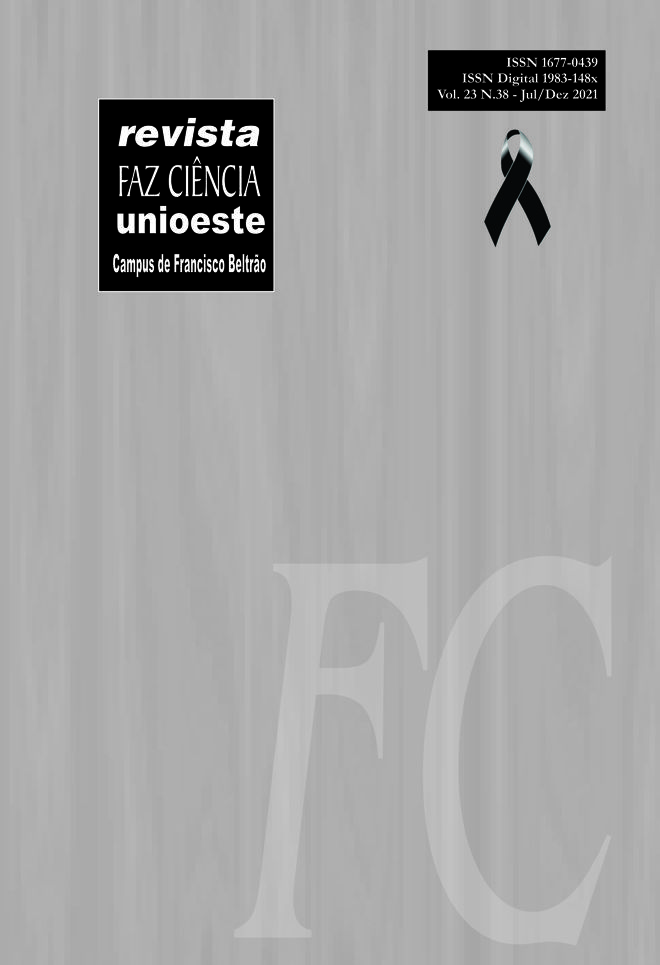A QUIMERA DO DESENVOLVIMENTO EM QUESTÃO: 8 teses contemporâneas e o mundo pandêmico
DOI:
https://doi.org/10.48075/rfc.v23i38.28350Abstract
The aim of this essay is to revisit contemporary developmental theses and perform an exercise in interpreting the Coronavirus pandemic. The method consists of a bibliographical review of the theses of Douglass North, Amartya Sen, Jared Diamond, Karl Polanyi, Sérgio Boisier, Ignacy Sachs, Gilberto Dupas and Alberto Acosta, in order to then establish a comparison of their interpretations and consider the application of their references in relation to the pandemic. As main results, it can be seen that these authors draw attention to the following issues: i) The institutional matrix is a determining factor in relation to the way in which the pandemic is dealt with; ii) The pandemic deprived us of a set of substantive freedoms; iii) The emergence of diseases can be read as a reaction of nature due to the way society lives in which health is always placed in the background; iv) Many people were able to react to the different crises caused by the pandemic, however, the role of the State is central in the process; v) The regional characteristics are decisive in facing the pandemic, including environmental, economic, social and political issues; vi) The fight against the pandemic needs to reconcile the economic, social, environmental, political and territorial dimensions; vii) It is necessary to rebuild the balance between the individual, society and nature with a new lifestyle; viii) The pandemic demonstrated the incapacity of the capitalist system, associated with science and technology, in dealing with the resulting environmental and social problems, since, once again, the poorest suffer the greatest damage.
Downloads
Published
How to Cite
Issue
Section
License

This work is licensed under a Creative Commons Attribution-NonCommercial-ShareAlike 4.0 International License.
Aviso de Direito Autoral Creative Commons
Política para Periódicos de Acesso Livre
Autores que publicam nesta revista concordam com os seguintes termos:
1. Autores mantém os direitos autorais e concedem à revista o direito de primeira publicação, com o trabalho simultaneamente licenciado sob a Licença Creative Commons Attribution que permite o compartilhamento do trabalho com reconhecimento da autoria e publicação inicial nesta revista.2. Autores têm autorização para assumir contratos adicionais separadamente, para distribuição não-exclusiva da versão do trabalho publicada nesta revista (ex.: publicar em repositório institucional ou como capítulo de livro), com reconhecimento de autoria e publicação inicial nesta revista.
3. Autores têm permissão e são estimulados a publicar e distribuir seu trabalho online (ex.: em repositórios institucionais ou na sua página pessoal) a qualquer ponto antes ou durante o processo editorial, já que isso pode gerar alterações produtivas, bem como aumentar o impacto e a citação do trabalho publicado (Veja O Efeito do Acesso Livre).
Licença Creative Commons
Esta obra está licenciada com uma Licença Creative Commons Atribuição-NãoComercial-CompartilhaIgual 4.0 Internacional, o que permite compartilhar, copiar, distribuir, exibir, reproduzir, a totalidade ou partes desde que não tenha objetivo comercial e sejam citados os autores e a fonte.


